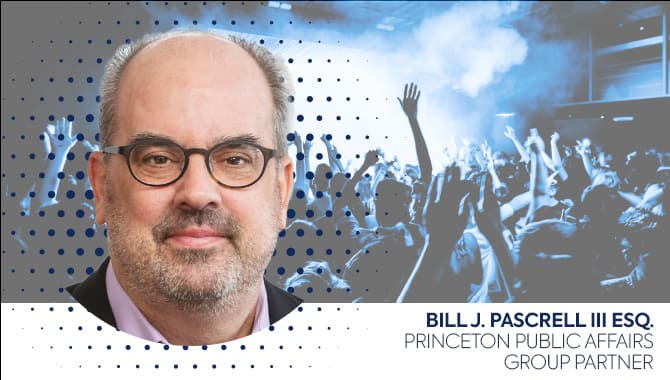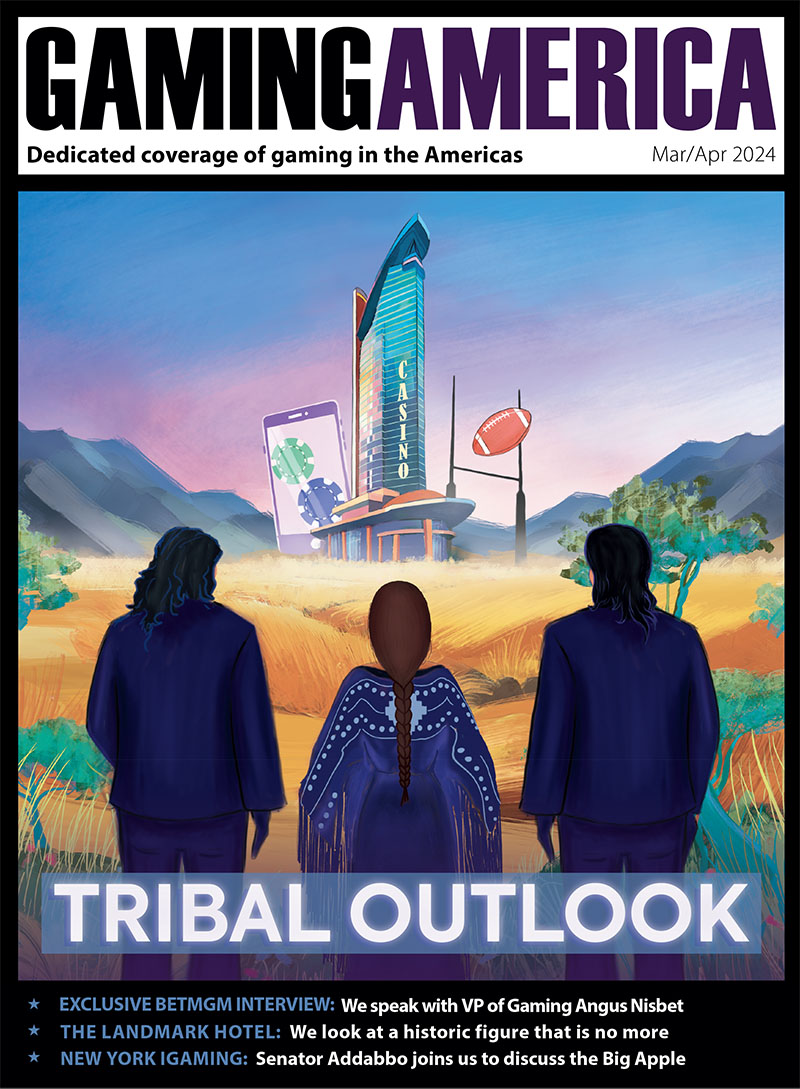
Twelve years ago, the Cosmopolitan of Las Vegas opened its doors. This highly anticipated luxury resort boasted 2,995 rooms, nine retail boutiques, three pools and the Boulevard Casino.
Many other casinos boasted larger footprints than the Boulevard, but what they didn’t have was the Marquee: a 40,000 square-foot nightclub embedded in the resort, featuring seven bars and bottle service. The owners of the Cosmopolitan invested $87m in the Marquee, and it became the highest-grossing club in the nation with $80m in revenue in its first year.
The Cosmopolitan’s owners didn’t grow the gaming floor to epic proportions. They limited it, to accommodate for features like the Marquee, that could draw in younger generations who have little interest in playing baccarat. This trend has only grown since 2010, and we now see brick-and-mortar casino operators taking one of two paths: adapting to shifting demographics and interests, or failing.
To be clear, the US casino industry is thriving. Caesars and MGM Resorts International reported record-high Q2 performances for their Las Vegas properties in early August. New Jersey’s nine casino hotel properties earned $276.9m in July, an increase of 8% year-over-year. Massachusetts casinos generated a $38m increase in revenue from 2020 to 2021. These impressive gains are promising for the brick-and-mortar casino industry, which relies heavily on a physical presence for players to meet face-to-face – and I wouldn’t be surprised if casino executives are convinced that they can safely do business as usual to achieve the profits they’re looking for.
Despite these recent performances, however, there is a pressing need for these executives to adapt to a series of cultural, demographic and technological changes that are shaping the gambling industry as we know it.
Brick-and-mortar casinos, which have a physical presence in which players meet face-to-face, are facing clear challenges. Five of New Jersey’s casinos of this type won less from in-person gamblers this July than they did in July 2019, while the state’s casinos as a whole saw their profits decline from Q1 to Q2 of this year.
In July, Pennsylvania’s casinos earned less revenue from slots and tables than they did in July 2021, when the state had two fewer locations. Fitch Ratings recently predicted that Las Vegas gaming revenue will decline by 10% next year.
Brick-and-mortar casinos are under threat from four key trends: the increasing popularity of online betting, the cultural focus on skill-based games, growing expectations from regulators of robust responsible gambling measures, and shifting demographics. Each of these must be addressed by casino operators to ensure their long-term survival.
One of the fastest-growing segments of last year’s global gaming revenue was esports, valued at over $1bn in 2021. One of the chief differentiators between esports and other types of gambling is that it’s overwhelmingly skill-based, and its dramatic rise in popularity points to a growing interest in skill-based games across gambling sectors.
When most people think of brick-and-mortar casinos, they think of a few staple games: blackjack, poker, roulette, and slots, to name a few. So long as casinos rely on these legacy games for the bulk of their revenue, they’ll ultimately be relying on gamblers to stay satisfied with the same offering they’ve been used to for decades – and one thing we’ve learned in the gambling industry is that you have to diversify your offering to keep people interested. Brick-and-mortar casinos must increase their focus on skill-based games and expand their offering altogether. Putting aside the immediate missed potential for revenue growth, these casinos will face existential crises if they don’t expand and change.
It’s been well-established that brick-and-mortar casinos are primarily visited and funded by older generations. Players between the ages of 60 and 70 represent the largest share of slot revenue for the casino, whereas players between the ages of 20 and 30 represent the smallest share of revenue for brick-and-mortar casinos. This disparity in demographics doesn’t extend to other forms of gambling: more than 60% of sports bettors, for example, are ages 40 or younger, and the rampant growth in esports is largely attributed to millennials. To fix their demographic problem, brick-and-mortar casinos must expand entertainment options for young people and reshape their view of what a casino is – and what it can be.
If the pandemic has taught the gambling industry anything, it’s that gambling companies can’t rely on in-person visitation for revenue. Despite Covid-19 slowly loosening its grip on American culture and business, Las Vegas visitation has yet to surpass pre-pandemic levels. Meanwhile, the pandemic allowed for unprecedented growth in online sports betting, which continues to challenge brick-and-mortar casinos. New Jersey’s brick-and-mortar casinos, for example, are facing stiff competition from New York, which began offering mobile sports betting earlier this year. As more and more states legalize mobile sports betting, land-based casinos will have to improve their integration of online betting to ensure their ability to attract younger, tech-savvy bettors.
The vast majority of bettors do so responsibly. Yet, by some estimates, five million Americans may experience a gambling problem every year. Problem gambling isn’t just something to wave away with a 1-800 number at the bottom of a television ad: casino operators must take this problem seriously, and strongly advocate for responsible gambling, or risk facing the same crises that have plagued European gambling operators for years, which stemmed from initially lax responsible gambling regulations.
Entain Foundation US, for which I serve as a trustee alongside Martin Lycka, SVP for American Regulatory Affairs and Responsible Gambling at Entain Plc, and former New York Giants wide receiver Amani Toomer are advocates for heightened regulations, an increased focus on addiction research, investments in player monitoring technology and more responsibility on the part of operators. I believe these developments are crucial, not just to protect players but to ensure the survival of the gambling industry itself. Brick-and-mortar casinos aren’t going anywhere – at least for now. We can reasonably expect these fixtures of American society to continue attracting customers in high numbers for the foreseeable future. However, to ensure their long-term survival, casino operators need to be aware of these clear trends and be prepared to address them head-on. Anything short of a robust effort to adapt to these changes in demographics, technology, culture and the regulatory environment will fail to protect them from the rapidly shifting environment in which they operate.















